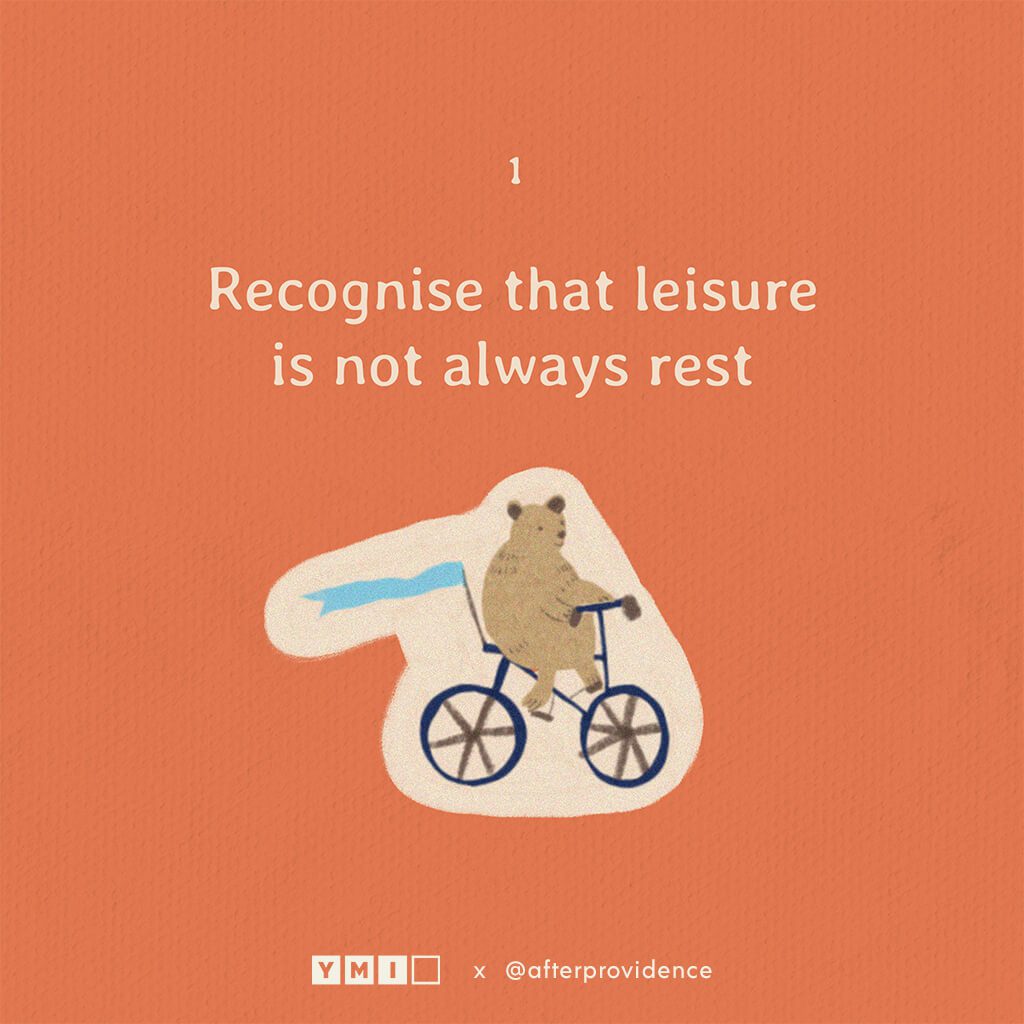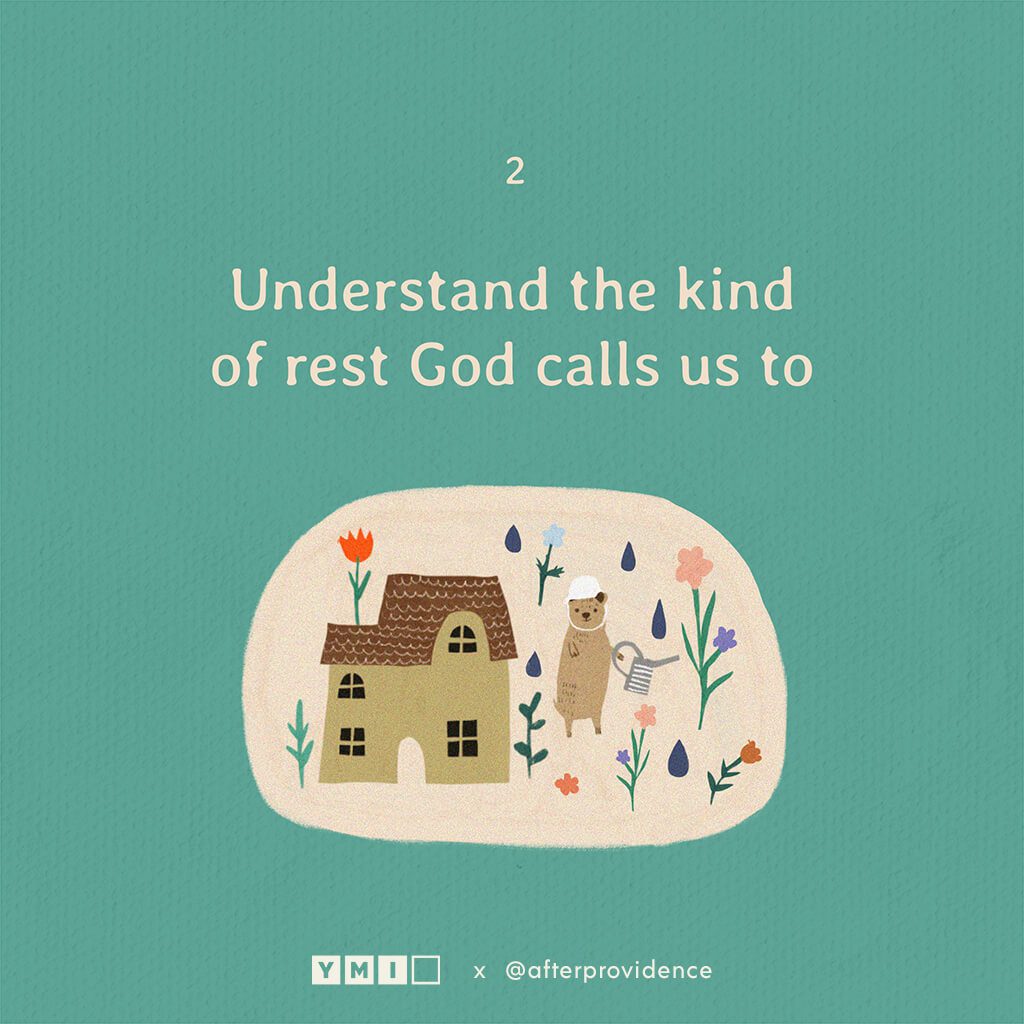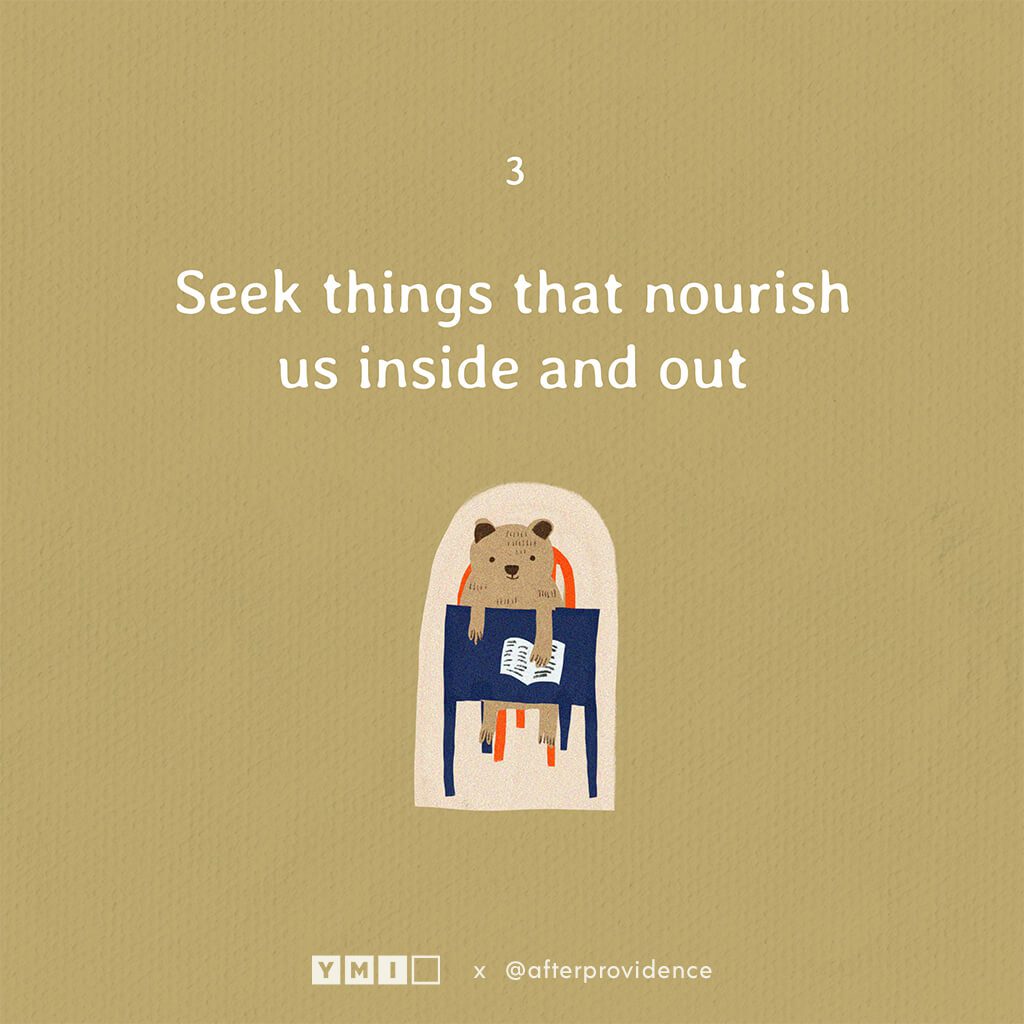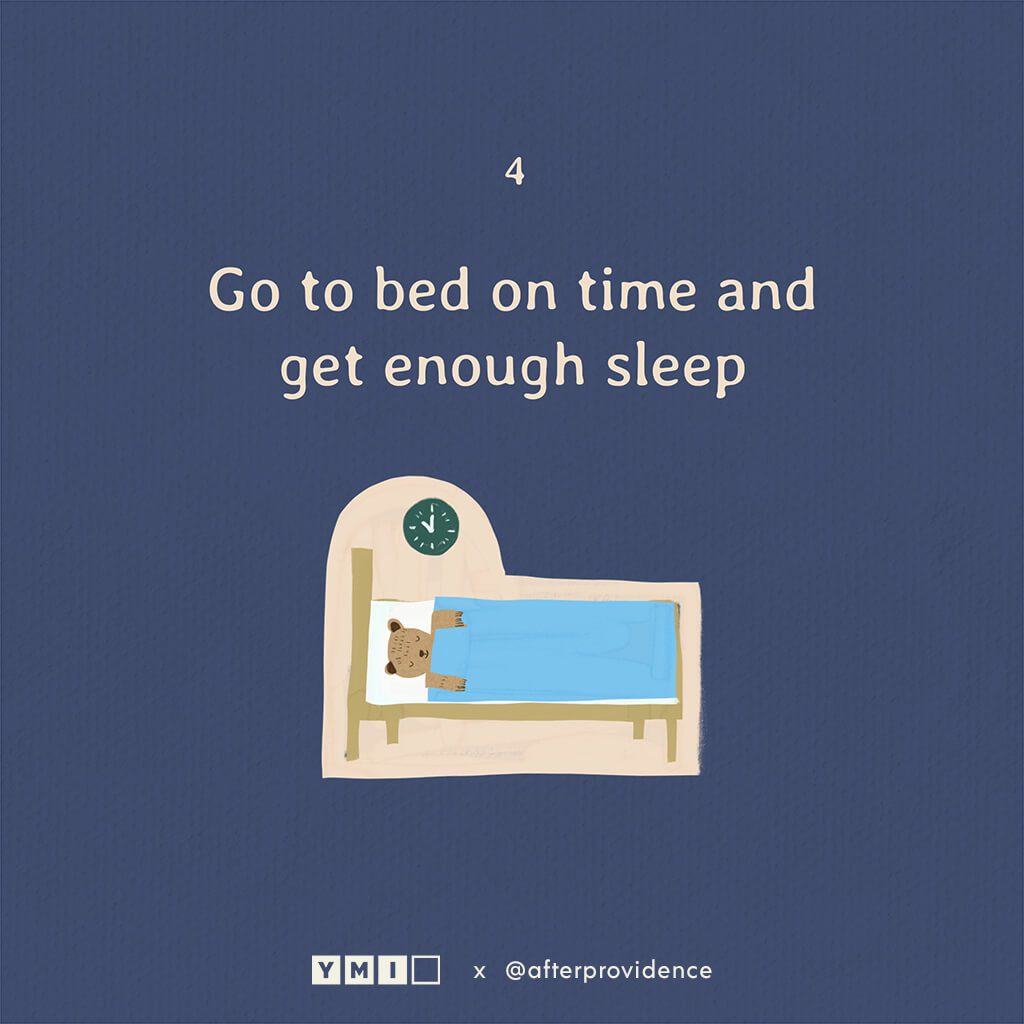4 Ways to Get the Most Out of Your Rest
Written By Karen Kwek
A lifelong scribbler, Karen enjoys the company of friends, a great cup of tea and seeing the gospel transform hearts and lives. She worked as a book editor until she and her husband traded peace and quiet for parenthood. It seemed a good idea at the time.
It happened to me again: a long weekend promised an extra day of rest, but after the break, I was dragging myself out of bed and not relishing the start of the work week.
Had I rested? Sure, the days had been full of non-work activities: a walk in the park, quiet time, visiting an aunt, grocery shopping, dinner with friends, and late-night Netflix! So why did I still feel tired after it all?
Do you, too, feel paradoxically in need of more rest after taking time off to recharge? Why do our modern lifestyles so often deprive us of true rest, and what is the Bible’s idea of rest? After searching for some answers to my dilemma, here are a few reminders I’ve come up with:

1. Recognize that leisure is not always rest
We tend to think of rest as anything that is non-work—from doing nothing, to indulging in our favorite interests. The truth is, however, that although our leisure activities may be a break from the work we usually do, these activities could either be physically tiring in themselves, or we could be pursuing them in a way that leaves us physically, mentally or spiritually drained rather than refreshed.
For instance, as much as an overseas holiday can be a refreshing break from work, travel can involve its own kinds of stress, from countering jet lag to negotiating culture shock, unexpected setbacks, young clamoring children, or a hectic itinerary.
Also, modern entertainment options can leave our bodies untaxed but our minds over-stimulated. With Internet streaming, digital news, social networking, e-commerce services and so much more, all readily accessible, we scroll, click, tap, swipe and hit “play” compulsively. Whether we realize it or not, information overload saps our mental energy. Our time is sucked away, and our minds become glutted with information and vulnerable to the world’s shifting values, trends, and opinions.
No wonder, then, that our leisure choices aren’t truly restful. But what does real restfulness look like?

2. Understand the kind of rest that God calls us to
In the Old Testament, God commanded the people of Israel to observe a “Sabbath day of rest.” It was a day of rest from work, but it was not simply physical inactivity; it was also a rest to the Lord (Exodus 20:10). By resting, the Israelites remembered and celebrated that God had rescued them from Egypt, and that they belong to Him. Indeed, rest was a reminder that God had set His people apart (Deuteronomy 5:15).
Moreover, the Israelites understood that they were on a journey toward a land God had promised them, a “resting place,” where they would be safe from enemies and where they would live with God (Deuteronomy 12:10). Every Sabbath, they should cease from work—the everyday activities that put food on the table and clothes on people’s back—to look forward to the promised rest and trust in God’s present provision.
During the time of the New Testament, however, the Pharisees and teachers of the law had misunderstood the nature of true rest. They had reduced the Sabbath to myriad prohibitions that relied on their own standards of righteousness instead of trusting in God. Yet, Jesus stakes His claim as Lord of the Sabbath and announces the arrival of “something greater than the temple” (Matthew 12:6-8). God was now dwelling with humankind in the flesh!
Jesus, the Lord of rest, calls us to stop looking for meaning in our own sufficiency or in bogus standards of security. Instead, He offers us rest for our souls (Matthew 11:28-30). True rest is about where we put our trust day to day. Ultimately, true rest is nothing less than the eternal rest of salvation.
Hebrews 4:3 makes this clear: “Now we who have believed enter that rest”—the rest which God had spoken to Israel of. For us, today, the way to eternal rest is believing that Jesus has paid for our sin on the cross. His burden is light because He carries it all; there is nothing we can contribute to our salvation.

3. Seek the things that nourish us, inside and out
As Christians we probably know all this, but we may not have connected it to the way that we rest. How often, for instance, is our rest really about remembering and relying on God’s saving and sustaining power, and rejoicing in His presence? How would rest look like if we were intentional about spending time with God?
As I begin to rethink my own days of rest, I wouldn’t necessarily throw out travel, exercise, friends, or Netflix—we enjoy good things with a heart of thanksgiving. Perhaps I’d guard against physical and mental exhaustion by planning for recovery time after an adventure holiday, or by unwinding to light music instead of checking out my favorite YouTube channels before bed.
But more than that, I’d like to be recharged by the things that truly nourish my soul and anchor me in the peace of God:
- Reading and remembering God’s Word – “The law of the Lord is perfect, refreshing the soul.” (Psalm 19:7);
- Talking to God – “The Lord is near. Do not be anxious about anything, but in every situation, by prayer and petition, with thanksgiving, present your requests to God. And the peace of God, which transcends all understanding, will guard your hearts and your minds in Christ Jesus.” (Philippians 4:5b–7);
- Confessing sins and asking for forgiveness – “Repent, then, and turn to God, so that your sins may be wiped out, that times of refreshing may come from the Lord …” (Acts 3:19);
- Praising and thanking God – “But I trust in your unfailing love; my heart rejoices in your salvation.” (Psalm 13:5–6);
- Having fellowship that strengthens our faith – “In addition to our own encouragement, we were especially delighted to see how happy Titus was, because his spirit has been refreshed by all of you.” (2 Corinthians 7:13).
It is no coincidence, by the way, that church should be about all these things. Perhaps we might prioritize our weekly gatherings, and find ourselves truly and mutually refreshed there!

4. Go to bed; get enough sleep
Lastly, although rest is more than physical, it is not less than that. We are embodied souls, and so physical exhaustion or ill health can take a toll on our mental and spiritual wellbeing. I don’t want to minimize Satan or sin’s role when we respond with a lack of thoughtfulness or love, but not getting enough bodily rest does contribute to attitudes and behaviors that don’t please God: short-temperedness, impatience, rash decision-making, selfishness, and so on.
These scenarios, for instance, show me that I am in dire need of more sleep: when I’m a different (and worse) person before my morning caffeinated brew, when I am kept awake by anxious thoughts, when I frantically desire a 48-hour day just to get more things done, when stress makes me more prone to anger or over-hasty judgments, when I feel grumpy if someone asks for my time . . .
In fact, at the end of a diligent day’s work, refusing to stop and go to bed can reveal that, deep down, we don’t really trust that God is in control. We may subconsciously be seeking security in our to-do lists, purpose in our productivity, refreshment in our entertainment, or sustenance in our caffeine hits. In the long-term, none of these things will bring us the rest our bodies and brains need. The God who designed us for a 24-hour day knows what He is doing, so we can rest assured, and awaken refreshed for the next day.
Friends, what will you do differently in your rest? I wish you times of refreshing and pleasant dreams. In the words of the psalmist, “In peace I will lie down and sleep, for you alone, Lord, make me dwell in safety.” (Psalm 4:8)










Very well written and insightful! Thanks for sharing